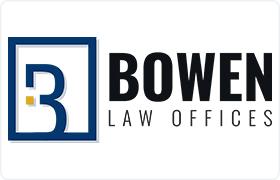Henderson Divorce & Family Law Lawyer, Nevada
Sponsored Law Firm
-
 x
x

Click For More Info:
-
Bowen Law Offices
9960 W. Cheyenne Ave. Suite 250 Las Vegas, NV 89129» view mapDivorce & Family Law Proudly Serving Clark County
Bowen Law Offices brings a wealth of litigation and courtroom trial experience to clients with various family law needs
800-357-1401
Kurt A. Smith
✓ VERIFIED *Status is reviewed annually. For latest information visit hereKurt Smith is the founder of Smith Legal Group. His practice focuses on family law, commercial litigation, personal injury, insurance law, corporate l... (more)
Anthony Patrick Sgro
✓ VERIFIED *Status is reviewed annually. For latest information visit hereAnthony P. Sgro is a partner and founding member of Sgro & Roger, LLC. After attending the University of San Diego for both his undergraduate educatio... (more)
Emily McFarling
✓ VERIFIED *Status is reviewed annually. For latest information visit hereEmily opened a solo law practice in Las Vegas in 2003 with the primary focus of family law. Since that time Emily has worked diligently to establish a... (more)
Emily McFarling
✓ VERIFIED *Status is reviewed annually. For latest information visit hereEmily is a Board Certified Family Law Specialist and has practiced almost exclusively family law since becoming an attorney in 2003 and formed McFarli... (more)
Emily McFarling
✓ VERIFIED *Status is reviewed annually. For latest information visit hereEmily opened a solo law practice in Las Vegas in 2003 with the primary focus of family law. Since that time Emily has worked diligently to establish a... (more)
Lesley E. Cohen
Lesley Cohen was raised in Southern Nevada, and graduated from the University of Nevada, Reno, and DePaul University College of Law in Chicago, Illino... (more)
Holly A. Fic
✓ VERIFIED *Status is reviewed annually. For latest information visit hereHolly Fic was born and raised in New Jersey and came out west to attend UNLV just in time to celebrate the Rebels basketball national championship win... (more)
Timothy R. Treffinger
✓ VERIFIED *Status is reviewed annually. For latest information visit hereWe are a small and highly focused law firm operating in Clark County Nevada. Our Managing Attorney, Tim Treffinger is a former prosecutor with the St... (more)
Michael Vicente Castillo
✓ VERIFIED *Status is reviewed annually. For latest information visit hereAs a former extern with the Clark County District Attorney's Office, he learned firsthand how “the other side” prosecutes cases. Now he's able to... (more)
 Jerome Bowen Las Vegas, NV
Jerome Bowen Las Vegas, NV AboutBowen Law Offices
AboutBowen Law Offices Practice AreasExpertise
Practice AreasExpertise









